Looking for the right customer service tool can be a challenge for small businesses, especially when balancing cost, functionality, and ease of use. While Gladly is a popular choice, it may not always fit the unique needs or budget of every business. That’s where exploring Gladly alternatives can help small businesses and SMEs find a solution that’s both effective and affordable.
In this post, you’ll find 12 customer service platforms tailored for small businesses and SMEs, each offering unique features to improve customer satisfaction, boost team productivity, and streamline support operations. From tools that handle multi-channel support to those that enhance agent performance and customer interactions, we’ll cover everything you need to find the right fit.
Ready to explore the best Gladly alternatives? Let’s dive in!
Why Consider Gladly Alternatives?
Gladly is known for its focus on customer support, particularly around personalized customer interactions and multi-channel communication. However, small businesses and SMEs often have specific requirements when it comes to customer service tools. For many customer service teams, Gladly was once a popular solution, but they face frustrations due to the platform’s limitations. These teams are now exploring better alternatives to improve their customer support capabilities, especially if they’re looking for simpler, more affordable, or highly customizable options.
Here’s why a business might look for alternatives:
- Cost Efficiency: Many small businesses operate on tight budgets and need a platform that delivers solid customer support without the high costs. Choosing a per-user pricing model or an option with agent-based pricing can make a difference in affordability.
- Essential Features vs. Advanced Features: While Gladly offers advanced options, some businesses only need basic features like ticket management, live chat, and reporting tools. Finding a simpler platform can improve productivity without unnecessary complexity.
- Scalability and Customization: For businesses planning to grow, having a scalable and customizable customer service platform can make it easier to add agents, expand features, and handle higher customer support volumes.
By exploring alternative platforms, small businesses can select a solution that aligns better with their support team’s workflow, fits the budget, and delivers high customer satisfaction ratings.
1.1. Limitations of Gladly
While Gladly is a powerful customer service platform, it has some limitations that may not make it the best fit for every business. Some of the limitations of Gladly include:
- Limited Customization Options: Gladly’s interface and workflows can be customized to some extent, but it may not be enough for businesses with unique requirements. This can be a drawback for companies that need highly tailored solutions to manage their customer interactions effectively.
- High Pricing: Gladly’s pricing plans can be expensive, especially for small businesses or startups operating on tight budgets. The cost can be a significant barrier for those looking for a more affordable customer service platform.
- Limited Integration Capabilities: Gladly may not integrate seamlessly with other tools and platforms that a business uses. This can lead to inefficiencies and data silos, making it harder to maintain a cohesive customer support strategy.
- Limited Scalability: For businesses experiencing rapid growth, Gladly may not be able to handle a large volume of customer interactions efficiently. This can lead to delays and frustration, impacting overall customer satisfaction.
1.2. Benefits of Choosing an Alternative
Choosing an alternative to Gladly can have several benefits for businesses. Some of the benefits include:
- Improved Customer Satisfaction: By selecting a platform that better aligns with their specific needs, businesses can enhance customer satisfaction and loyalty. A more suitable platform can provide faster response times and more personalized support, leading to happier customers.
- Increased Efficiency: Alternative platforms may offer more advanced automation and workflow features, helping businesses streamline their customer support processes. This can lead to quicker resolution times and a more efficient support team.
- Better Reporting and Analytics: Many alternative platforms provide comprehensive reporting and analytics features. These tools can offer valuable insights into support performance, customer satisfaction, and areas for improvement, enabling businesses to make data-driven decisions.
- Personalized Support: Some platforms offer more robust personalized support features, allowing businesses to build stronger relationships with their customers. By leveraging customer data and interaction history, support teams can deliver more relevant and personalized responses.
12 Gladly Alternatives for Enhanced Customer Service
Below is a list of 12 customer service platforms that serve as excellent alternatives to Gladly, tailored to meet the needs of small businesses and SMEs. Many customer service teams are exploring these alternatives to improve their support capabilities.
1. Desku
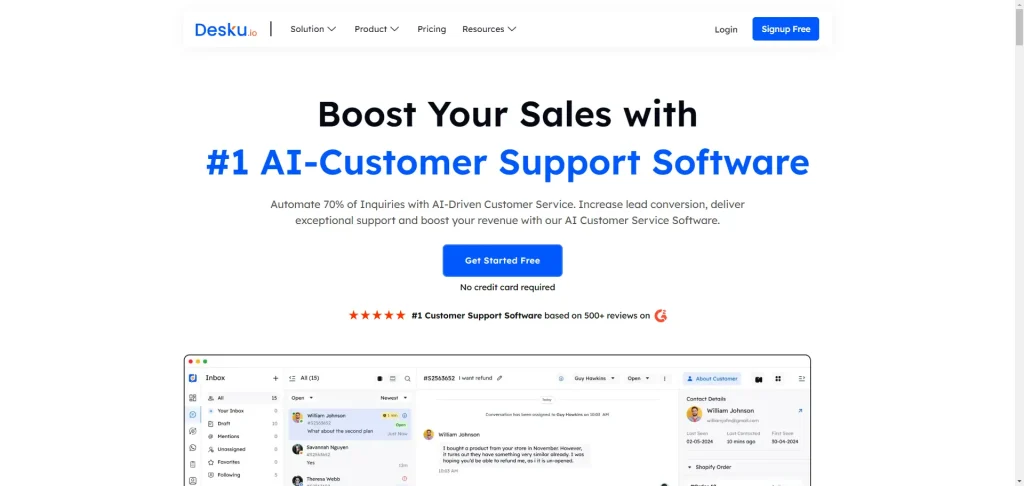
Desku is a versatile customer service platform tailored for small and medium-sized businesses. It provides essential customer support features with an emphasis on simplicity and ease of use, making it ideal for teams that want straightforward tools to manage interactions and boost productivity.
- Key Features: Ticketing, live chat, multi-channel support, and a knowledge base.
- Best For: SMEs looking for an easy-to-use, affordable platform with essential support features.
- Pricing: Offers flexible pricing plans suited to small and medium-sized business budgets.
2. HubSpot Service Hub
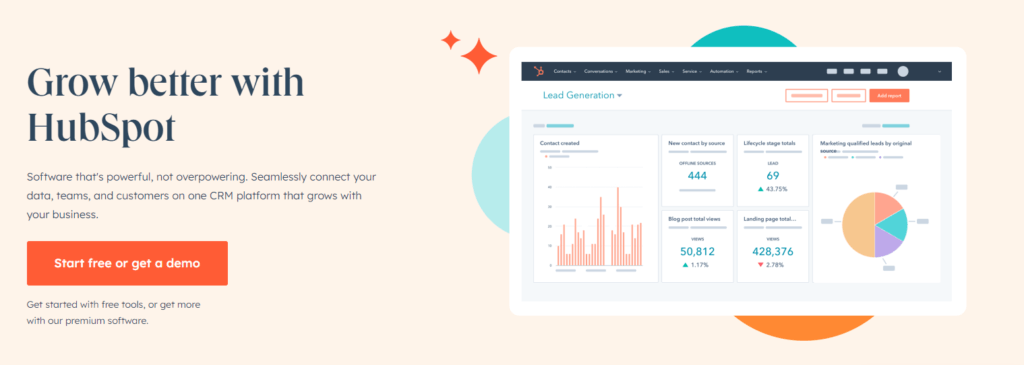
HubSpot Service Hub provides an integrated approach to customer service, offering tools that work seamlessly with HubSpot’s other business tools. This is a strong option for small businesses focused on building customer relationships through well-connected support operations.
- Key Features: Ticketing system, knowledge base, self-service options, and integration with HubSpot CRM.
- Best For: Businesses that already use HubSpot for marketing and sales.
- Pricing: Free version available; tiered plans for advanced features.
3. Zoho Desk
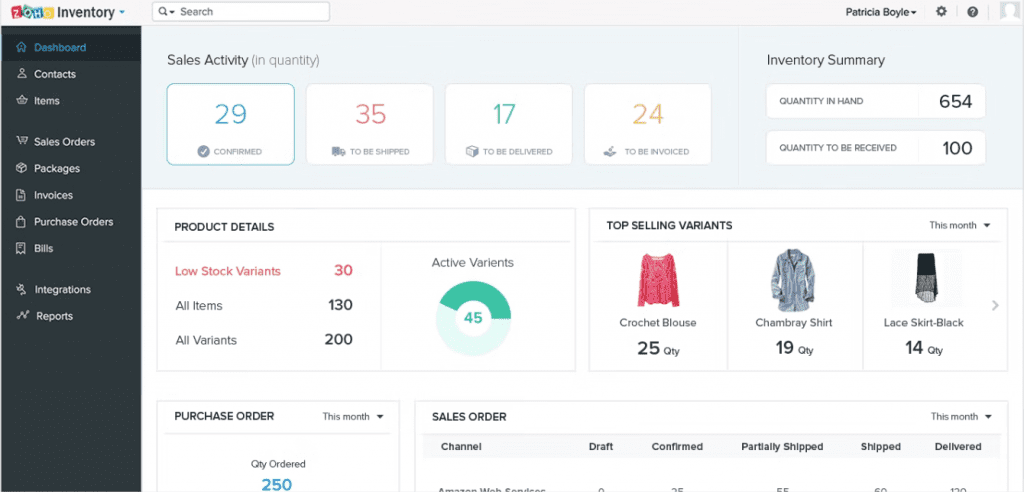
Zoho Desk is a cost-effective, feature-packed platform designed to enhance support efficiency with automation and AI-powered suggestions. It’s ideal for small teams seeking a robust customer service solution without the steep price.
- Key Features: Ticket management, multi-channel support, AI-based suggestions, and automation tools.
- Best For: Smaller teams looking for affordable, full-featured customer service software.
- Pricing: Starts with a free plan; affordable paid plans for more advanced features.
4. Freshdesk
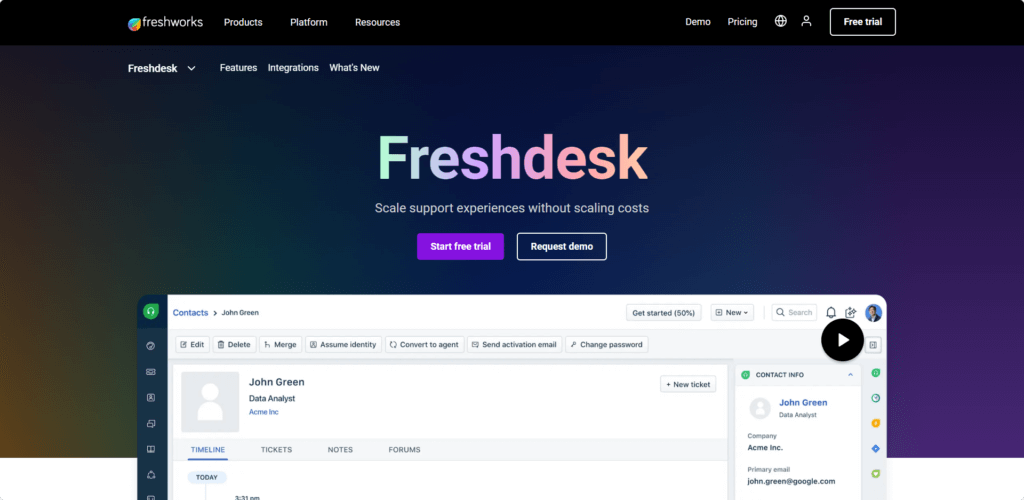
Freshdesk offers small businesses an intuitive platform with multi-channel support options, making it easy to centralize customer communication across platforms. With its emphasis on simplicity, Freshdesk is great for teams that need quick setup and user-friendly tools.
- Key Features: Live chat, automated workflows, reporting tools, and multiple communication channel support.
- Best For: Companies looking for straightforward support tools and self-service customer portals.
- Pricing: Flexible per-user plans based on business size and needs.
5. Zendesk
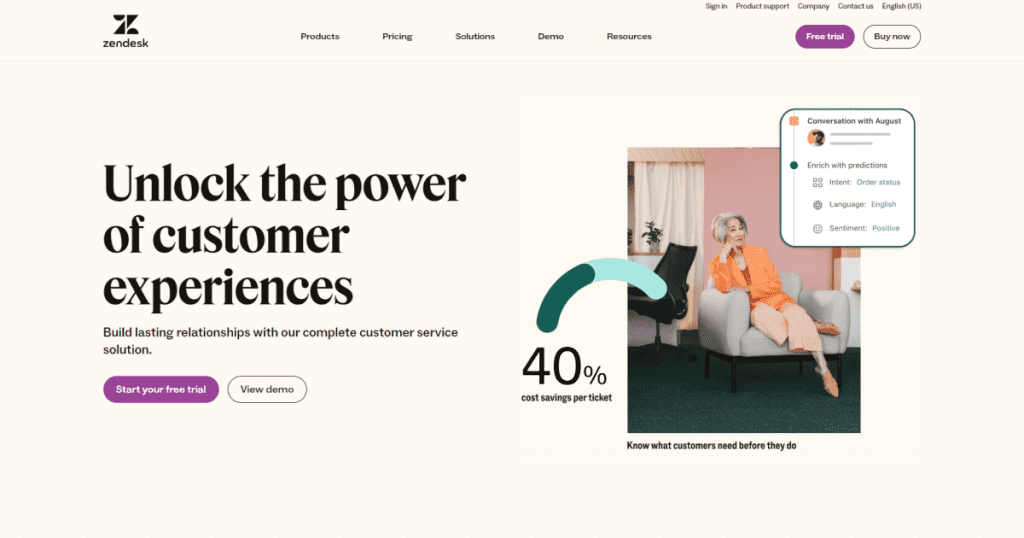
Zendesk is a trusted name in customer support software, offering an all-in-one solution with robust ticketing, analytics, and self-service options. Known for its flexibility, Zendesk is suitable for businesses that require more control and customizability in their customer support setup.
- Key Features: Omnichannel support, advanced analytics, automation, and a knowledge base.
- Best For: Companies that need an all-in-one, scalable customer service tool.
- Pricing: Variety of plans available based on team size and feature needs.
6. Intercom
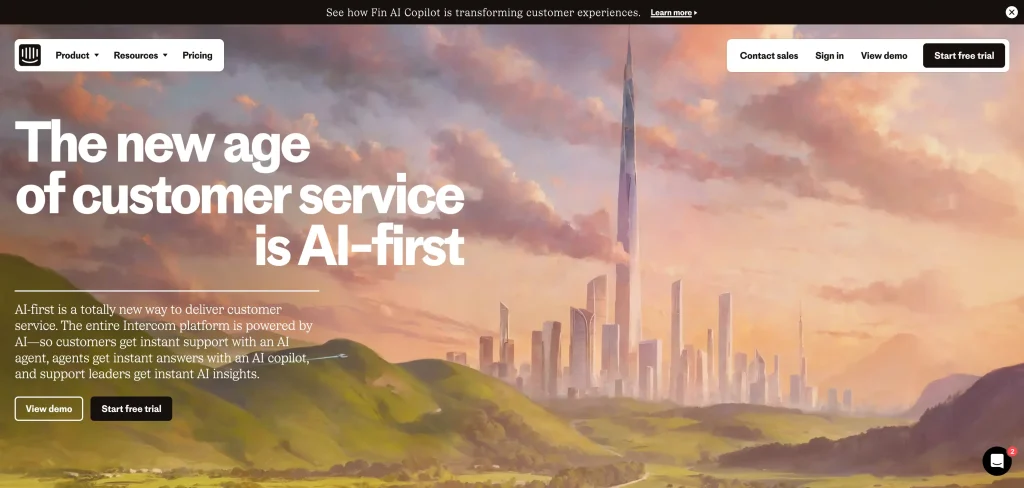
Intercom specializes in real-time customer engagement, making it a top choice for businesses that value conversational customer support. It includes a range of tools that foster quick, personalized interactions with customers, keeping support fast and relevant.
- Key Features: Live chat, chatbot automation, customer engagement tracking, and personalized messaging.
- Best For: Businesses focused on real-time customer communication and personalized support.
- Pricing: Custom pricing based on team needs and features.
7. Kayako
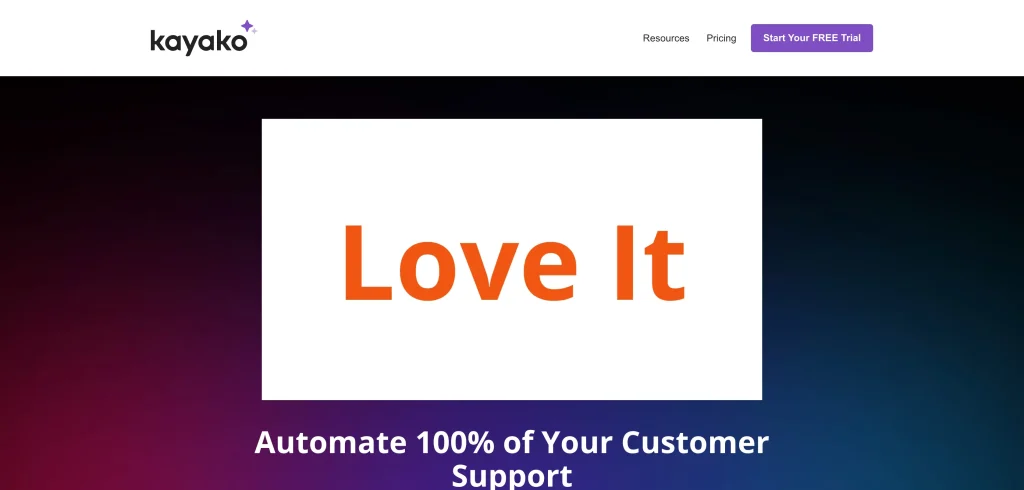
Kayako is designed for small teams that rely heavily on collaboration to manage customer inquiries. The platform offers shared inboxes and collaborative tools, enabling teams to work together seamlessly and provide faster, more accurate responses.
- Key Features: Shared inbox, help center, live chat, and centralized customer interactions.
- Best For: Small support teams requiring strong collaboration tools for effective customer conversations.
- Pricing: Competitive pricing, ideal for smaller teams on a budget.
8. Help Scout
Help Scout provides a no-fuss customer support platform that’s easy to navigate, with an email-first approach to support. It’s ideal for businesses that want a professional yet straightforward tool to manage customer communication and maintain organized support interactions.
- Key Features: Ticket management, customer profiles, knowledge base, and email-based support.
- Best For: Small businesses focused on email support and simplified customer communication.
- Pricing: Affordable per-user plans with core support features.
9. Gorgias
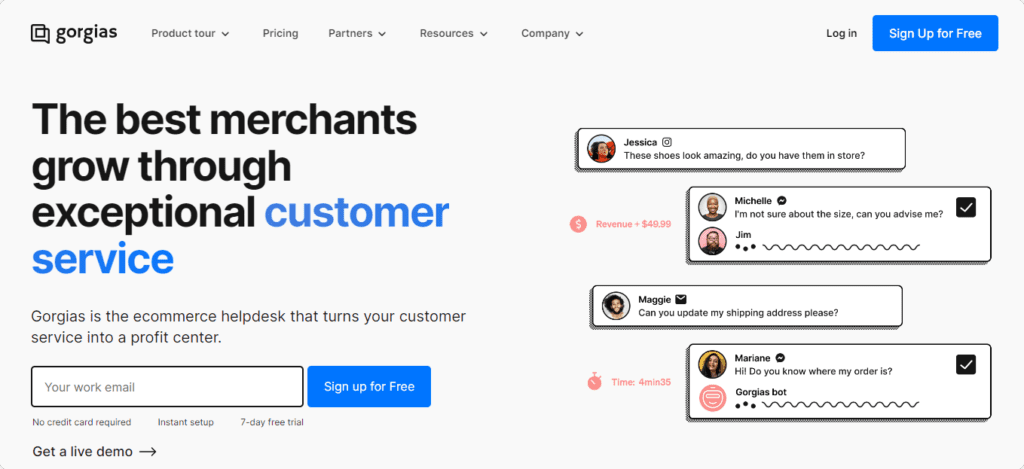
Gorgias is tailored for e-commerce businesses, integrating easily with major platforms like Shopify and Magento. It enables businesses to manage customer inquiries across social media, email, and chat channels in one place, boosting support productivity and response speed.
- Key Features: Social media integration, customer communication tracking, multi-channel support.
- Best For: E-commerce businesses that need multi-channel support with a focus on social media and sales inquiries.
- Pricing: Tiered pricing based on support ticket volume.
10. ReAmaze
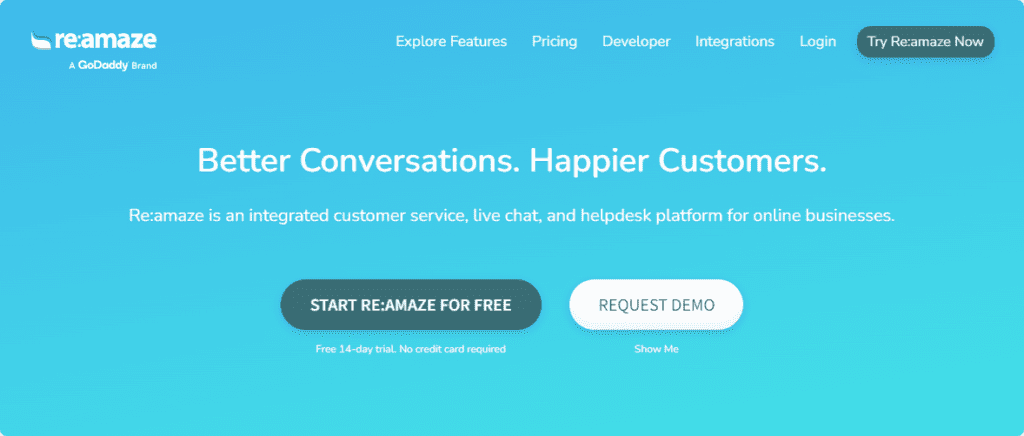
ReAmaze offers a user-friendly customer support platform that focuses on live chat and automation, ideal for teams that prioritize real-time support and simple automation. This is a strong choice for businesses looking to manage customer queries through live channels.
- Key Features: Live chat, chatbot automation, multi-channel support, and customer data integration.
- Best For: Companies that need efficient chat support with built-in automation.
- Pricing: Flexible pricing based on team size and chosen features.
11. LiveAgent
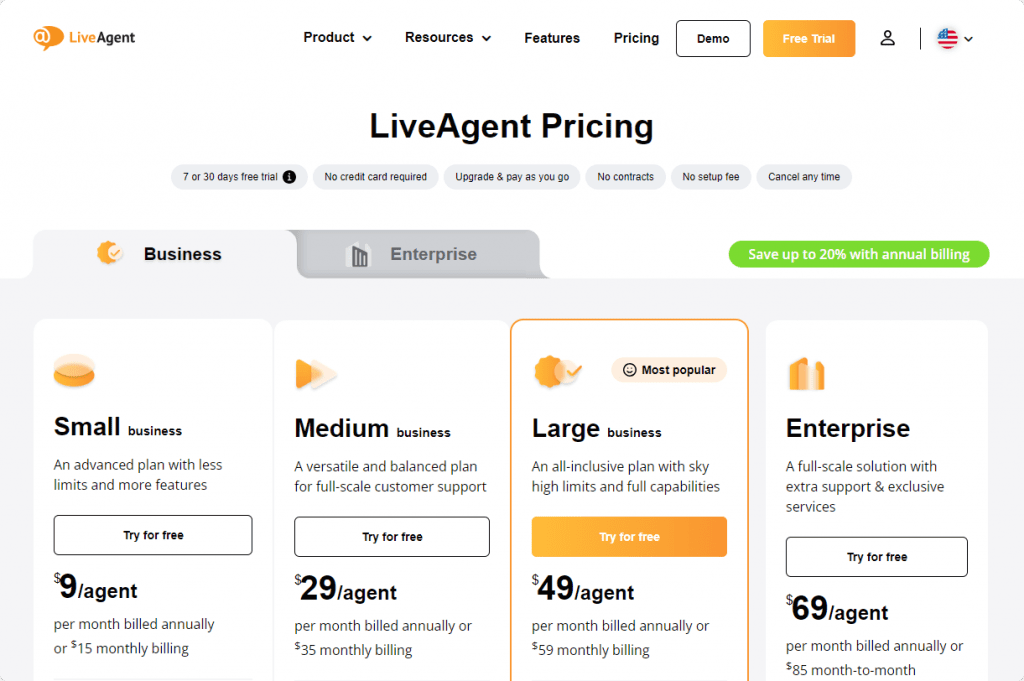
LiveAgent provides an affordable, multi-channel customer service solution that includes everything from ticketing to call center support. It’s an excellent choice for businesses looking for an all-in-one solution at a reasonable cost.
- Key Features: Ticketing, live chat, call center integration, customer satisfaction tracking.
- Best For: Small businesses needing a budget-friendly, comprehensive support tool.
- Pricing: Tiered plans with various features and user options.
12. Front
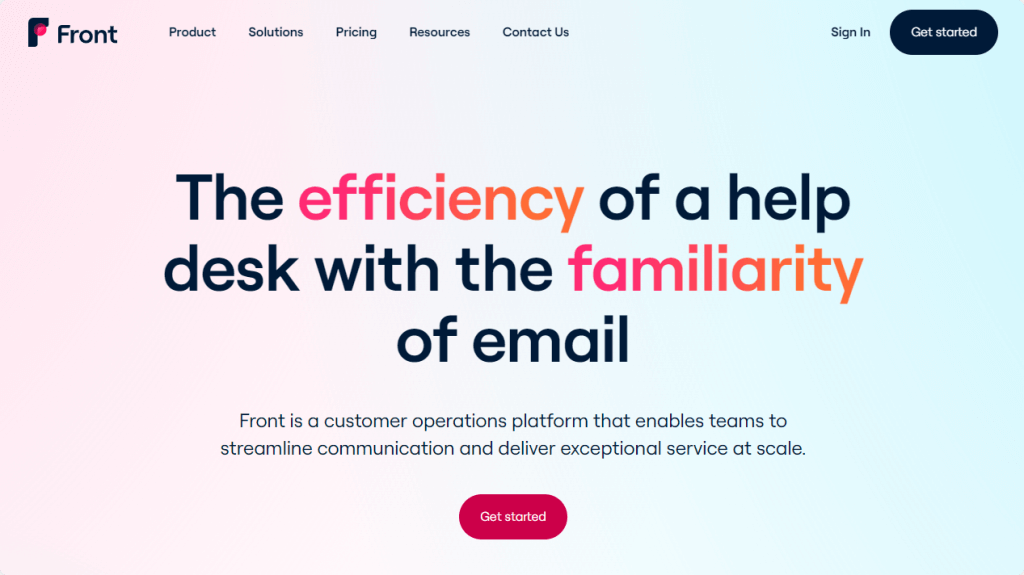
Front is designed to facilitate teamwork in customer support, focusing on tools that make team collaboration easy. It provides a shared inbox and integrates with multiple channels, allowing teams to handle customer conversations efficiently.
- Key Features: Ticket management, collaboration tools, shared inbox, and automation.
- Best For: Teams prioritizing collaboration and streamlined customer interactions.
- Pricing: Per-user pricing model based on team size and needs.
Each of these Gladly alternatives brings unique benefits for small businesses and SMEs, allowing support teams to choose a solution that fits their specific needs, improves customer satisfaction, and supports daily customer service processes.
Here’s a comparison table summarizing the key features, best use cases, and pricing models for each of these Gladly alternatives. This will make it easy for readers to quickly assess which platform might best suit their needs.
| Platform | Key Features | Best For | Pricing |
|---|---|---|---|
| Desku | Multi-channel support, automated workflows, knowledge management, advanced analytics | Small businesses needing centralized support | Agent-based, varies by feature level |
| HubSpot Service Hub | Ticketing, knowledge base, self-service options, CRM integration | Businesses using HubSpot for marketing/sales | Free with paid tiers for advanced features |
| Zoho Desk | Ticket management, AI suggestions, multi-channel support, automation | Small teams needing affordable support tools | Free tier; affordable paid plans |
| Freshdesk | Live chat, automated workflows, reporting, multi-channel support | Teams looking for easy setup and self-service portals | Per-user plans, flexible pricing |
| Zendesk | Omnichannel support, advanced analytics, automation, knowledge base | Businesses needing scalable, all-in-one tools | Multiple plans based on team size |
| Intercom | Live chat, chatbot automation, engagement tracking, personalized messaging | Real-time support and customer engagement | Custom pricing based on features |
| Kayako | Shared inbox, live chat, centralized interactions, help center | Small teams prioritizing collaboration | Competitive, team-friendly pricing |
| Help Scout | Ticket management, email-based support, knowledge base | Small businesses needing simple, email-focused support | Affordable per-user plans |
| Gorgias | Social media integration, multi-channel support, communication tracking | E-commerce businesses with social media support needs | Based on support ticket volume |
| ReAmaze | Live chat, chatbot automation, multi-channel support, data integration | Teams prioritizing chat support with automation | Flexible, feature-based pricing |
| LiveAgent | Ticketing, call center, live chat, satisfaction tracking | Small businesses needing affordable, all-in-one support | Tiered plans with feature options |
| Front | Ticket management, collaboration tools, shared inbox, automation | Teams focused on collaboration and efficiency | Per-user pricing |
Essential Features to Look for in a Customer Service Platform
Finding the right customer service platform means identifying tools that match your team’s daily needs and your business’s growth goals. Many customer service teams have faced frustrations with Gladly due to its limitations, prompting them to explore better alternatives to improve their customer support capabilities. Here are some key features to consider when exploring Gladly alternatives:
- Multi-Channel Support: With customers reaching out across social media, live chat, email, and phone, small businesses need a multi-channel support system to manage all interactions in one place. This feature enables smooth customer communication and keeps support teams on the same page.
- Ticket Management: A ticketing system allows support teams to categorize, prioritize, and resolve customer inquiries efficiently. Look for platforms that offer automated workflows to help streamline ticket assignments and response times.
- Knowledge Base and Self-Service Options: Self-service options like a knowledge base or customer portal give customers quick access to answers and resources. This helps free up time for support agents while improving the customer experience by providing instant help.
- Personalized Customer Interactions: Customers today expect more than generic responses. Look for platforms that enable personalized customer interactions by storing and retrieving customer data and interaction history, so support agents can deliver relevant and personalized responses.
- Reporting and Analytics: To keep improving customer service performance, reporting tools are essential. Features that offer insights into agent performance, support tickets, and customer satisfaction ratings allow businesses to adjust strategies and allocate resources where needed.
- Collaboration Tools: If you have a growing team, collaboration tools like shared inboxes and project management tools can make it easier for agents to work together on complex customer issues. This promotes teamwork and ensures consistent customer support.
- Scalable Automation and AI: Automation tools help with repetitive tasks like sending out follow-up messages or tagging inquiries. As a business grows, having AI-based suggestions or routing can improve the speed and efficiency of customer support operations.
By focusing on these essential features, small businesses can ensure that their chosen platform supports both the customer support team and the end goal of delivering exceptional customer support.
How to Choose the Right Customer Service Platform for Your Business
Choosing the right customer service platform can make a big difference in customer satisfaction, support team productivity, and overall business growth. Customer service teams need to consider various factors when choosing a better solution. Here are some factors to consider when selecting the best Gladly alternative for your small business or SME:
1. Define Your Budget and Pricing Preferences
- Budget: Small businesses often operate with limited budgets, so it’s essential to choose a platform with a pricing model that aligns with your financial resources. Options like per-user pricing or tiered plans allow businesses to control costs based on their team size and feature needs.
- Value: Compare the features offered at each price point. For example, if ticket management and multi-channel support are must-haves, look for a platform that offers these essentials in its base plan without unnecessary extras.
2. Identify Core Features for Your Support Team
- Ticketing System: For organized, efficient customer support, look for platforms with robust ticket management capabilities. This is especially crucial for teams that need to streamline their customer service process and track support tickets through various stages.
- Multi-Channel Support: If your customers contact you through social media, email, phone, or chat, choose a platform that can handle multiple communication channels seamlessly. This ensures all customer interactions are consolidated and managed effectively.
- Self-Service Options: Platforms with knowledge bases and self-service portals allow customers to find answers independently, reducing the volume of inquiries handled by your support team. For businesses with limited support staff, this can be a game-changer.
3. Evaluate Scalability for Long-Term Growth
- Adaptability: As your business grows, your customer support needs will likely expand. Choose a platform with scalable options, allowing you to add agents, upgrade features, and handle more customer inquiries without needing a complete platform switch.
- Automation and AI: If you plan to scale, consider platforms with automation tools for repetitive tasks. This can include automated workflows for ticket assignment, follow-ups, and customer data retrieval, saving time as your support volume increases.
4. Prioritize Usability and Interface Design
- Ease of Use: For small teams, it’s crucial to have a user-friendly interface that agents can navigate easily. Platforms like Desku.io and Help Scout offer straightforward interfaces that are intuitive for teams with limited technical expertise.
- Agent Collaboration: Look for collaboration tools like shared inboxes or task assignment features if your team works together on support tickets. Platforms like Front and Kayako emphasize team collaboration, making it easier to manage customer interactions as a group.
5. Check for Integration Capabilities
- Compatibility with Existing Tools: Ensure the platform integrates with the tools you already use, such as CRM software or marketing platforms. For instance, HubSpot Service Hub integrates smoothly with HubSpot CRM, making it ideal for businesses already using HubSpot for other operations.
- Flexibility: The more flexible a platform’s integration options, the better it can adapt to new tools you might add as your business grows. This helps your support team operate within a unified system, improving support performance and customer experience.
6. Look for Reliable Reporting and Analytics Capabilities
- Performance Tracking: To understand how your support team is performing, reporting tools are crucial. Look for platforms with analytics that cover agent performance, customer satisfaction ratings, and support ticket volume. This data can help you make informed decisions about training, resource allocation, and process improvements.
- Customer Insights: Some platforms also offer insights into customer behaviors and preferences, allowing you to fine-tune your customer service strategies based on real-time data.
5. Migration and Transition
Migrating from Gladly to an alternative platform can be a complex process, but with the right approach, it can be done smoothly and efficiently.
5.1. How to Transition Smoothly
To transition smoothly from Gladly to an alternative platform, businesses should follow these steps:
- Plan Carefully: Start by planning the migration process in detail. Identify your specific needs and requirements, and create a timeline for the transition. This will help ensure that all aspects of the migration are covered and that there are no surprises along the way.
- Choose the Right Platform: Select an alternative platform that aligns with your business needs and goals. Consider factors such as essential features, scalability, integration capabilities, and pricing.
- Migrate Data: Use reliable tools and services to migrate your data from Gladly to the new platform. Ensure that the data transfer is accurate and complete to avoid any disruptions in your customer support operations.
- Train Staff: Provide comprehensive training for your staff on the new platform. Ensure that they are comfortable and confident using it, so they can continue to deliver high-quality customer support without any hiccups.
5.2. Migrate for Free from Gladly
Migrating from Gladly to an alternative platform can be done for free, using tools and services that are designed to make the process smooth and efficient. Some of the benefits of migrating for free include:
- Cost Savings: Migrating for free can save businesses money, which can be invested in other areas of the business. This is particularly beneficial for small businesses and startups with limited budgets.
- Time Savings: Free migration tools and services can save businesses time, allowing them to focus on other important tasks and activities. A smooth transition ensures that there is minimal disruption to daily operations.
- Reduced Risk: Using free migration tools can reduce the risk of errors and mistakes, which can be costly and time-consuming to fix. These tools are often designed to ensure a seamless transfer of data, minimizing the chances of data loss or corruption.
By following these steps and using the right tools and services, businesses can migrate from Gladly to an alternative platform smoothly and efficiently, improving their customer support processes and increasing customer satisfaction.
Conclusion: Finding the Best Customer Service Tool for Your Business
Choosing the right customer service platform can transform your support team’s effectiveness, streamline operations, and improve overall customer satisfaction. For small businesses and SMEs, the ideal solution should balance affordability, essential features, and scalability to meet both current needs and future growth.
Whether you need a user-friendly interface like Desku,Help Scout, robust automation tools like Salesforce Service Cloud, or a platform specifically designed for e-commerce support like Gorgias, this list offers options for every type of business. By focusing on your core needs—like multi-channel support, ticketing, and collaboration features—you can find the platform that aligns perfectly with your goals and budget.
Ready to enhance your customer support experience? Explore these Gladly alternatives and find the best platform that empowers your team to deliver exceptional customer support and build lasting customer relationships. Customer service teams can benefit greatly from selecting the right platform to enhance their support capabilities.


